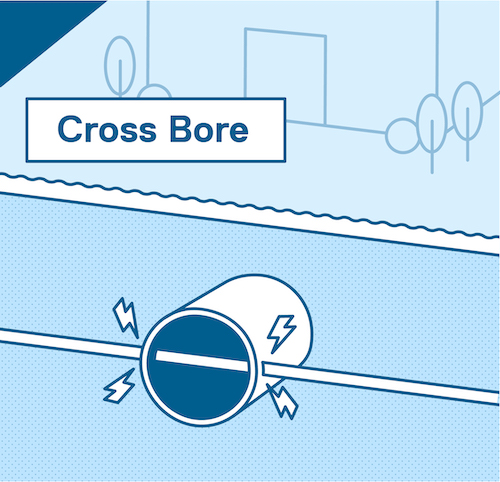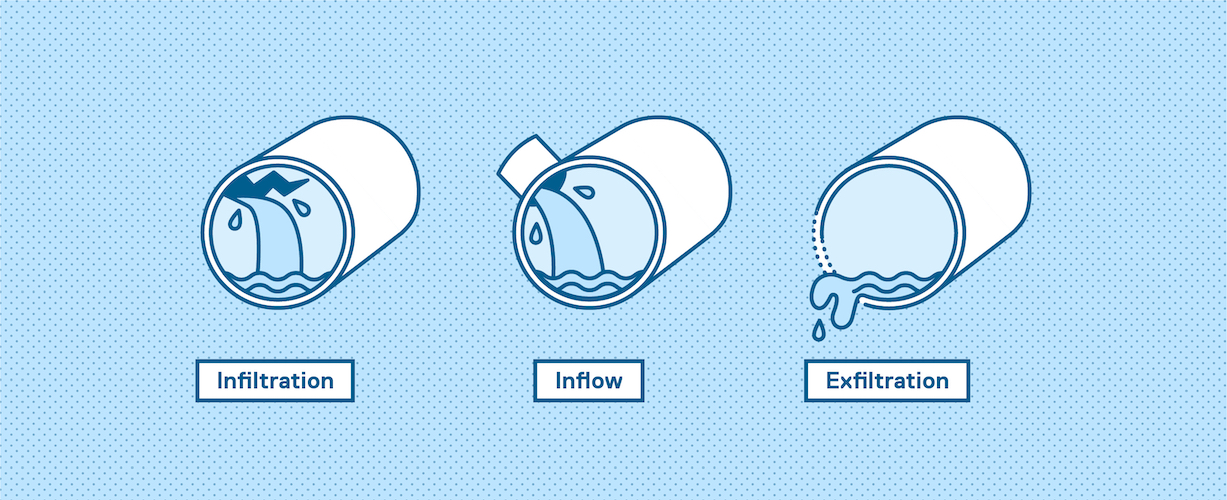Below The Surface
Cross Bores
What is a cross bore?

Cross bores happen when there is an unintentional drilling of a new pipeline through existing pipelines using trenchless drilling technologies. This, as you might imagine, compromises the integrity of underground infrastructure.
Typically, when trenchless digging technologies are being used, most utilities will mark the location of existing pipelines. But not every industry or underground facility owner is required to participate. And participation can vary by state. To further complicate matters, the majority of sewer pipe doesn’t have tracer wire, making it difficult to locate from above ground. This can lead to miscommunication, and ultimately increase the potential for cross bores.
Why do you need to know about cross bores? (And can pipeline inspections systems help?)
“Cross bore” is one of those terms that sounds harmless—maybe simply a description for a kind of digging method. But that’s not what it is. Having a pipeline driven through your existing pipeline can cause major problems.
What can go wrong here?
Cross bore situations can range from the annoying to the extremely dangerous. You could be dealing with a simple sewage spill, experience inflow and infiltration (fluids flowing into your pipeline), exfiltration (contents flowing out of your pipeline) and potentially explosions. Without the proper video pipeline inspection equipment, small problems can go unnoticed leading to much more dire circumstances down the line.

CUES, Inc., Sewer Inspections, & Cross Bores
As the world’s leading manufacturer of water, wastewater, and stormwater camera inspection equipment, CUES provides the necessary tools for both pipeline inspection and sewer pipe rehabilitation methods. That includes equipment to locate potential cross bore situations, software that makes it easier to monitor your entire system, and mapping solutions to give all parties a better idea of what’s underground during sewer lateral inspections. Our knowledge could be your first line of defense to quickly detect, and hopefully avoid, the troubles associated with cross bores.